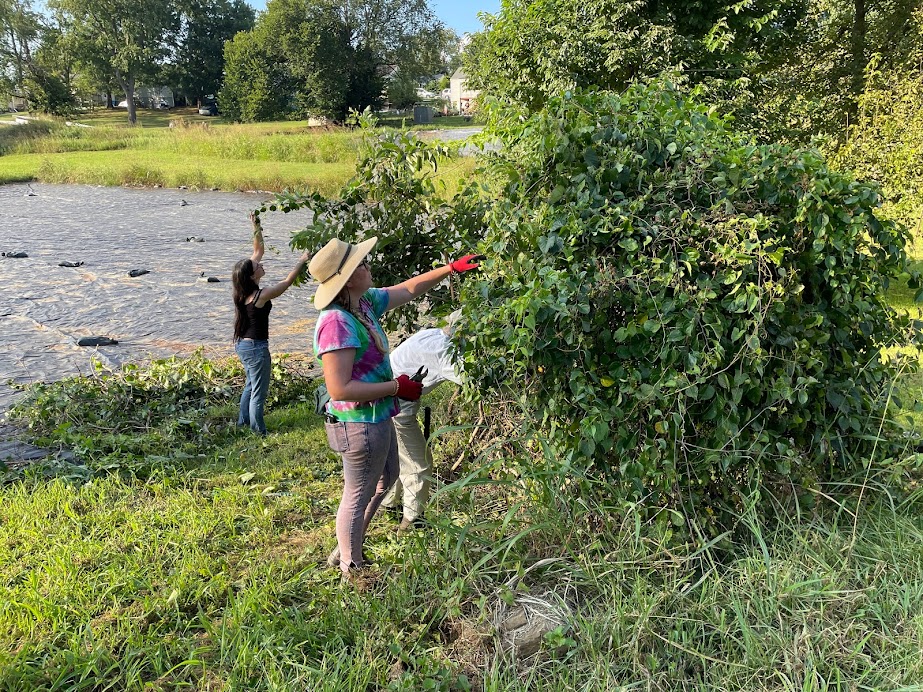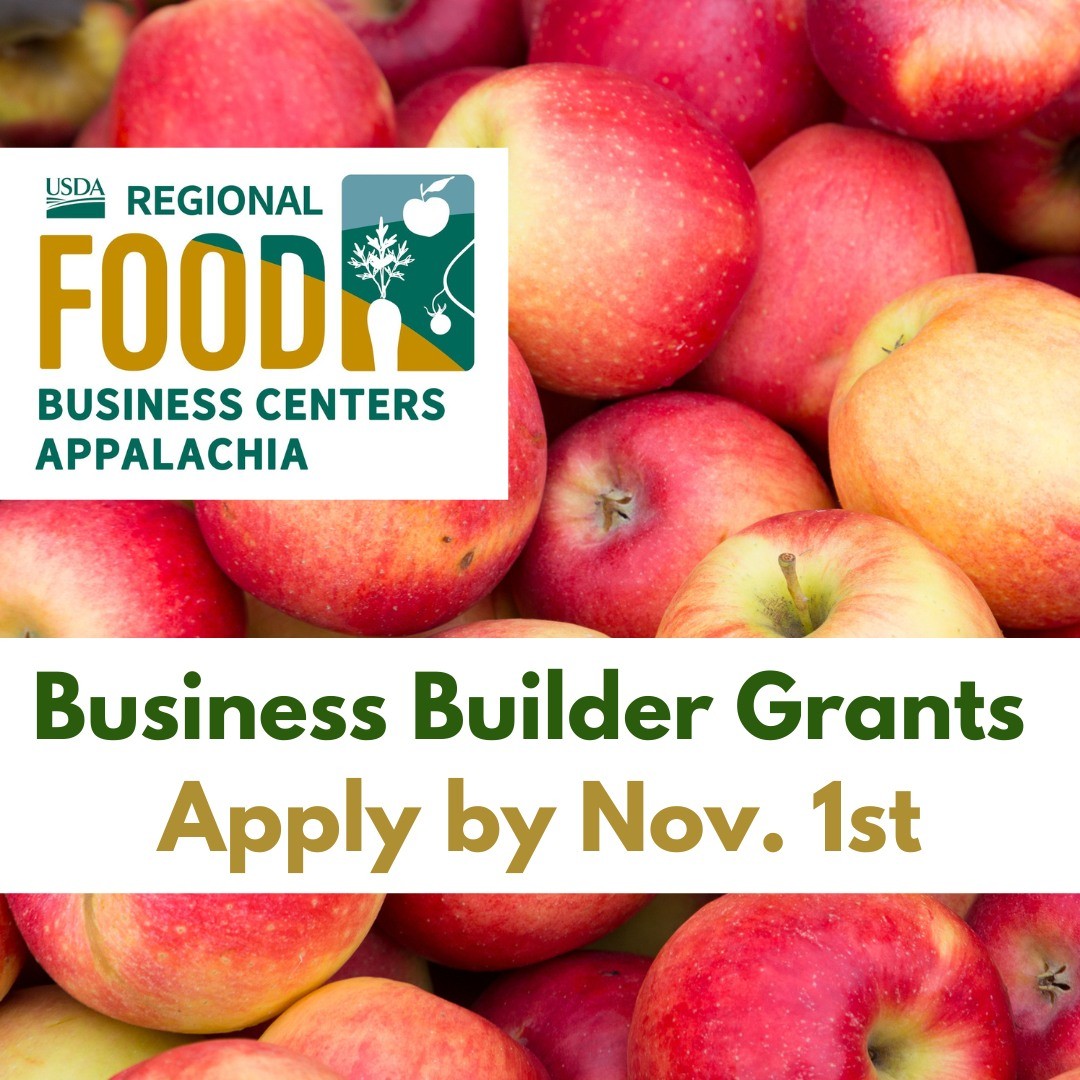Even as the summer draws to a close, farmers are as busy as ever, harvesting the last of their summer crop, and transitioning to the fall season. Next week, participants in Lick Run Farm’s Take Root Program, a career development program catering to youth in Roanoke, Virginia, will begin building the farm’s first greenhouse.
“So long as the parts arrive as they’re supposed to, we’ll break ground on that next week, and that’ll be our first covered growing space on the farm,” said Cam Terry, owner-operator of a successful urban farming business in Roanoke, Garden Variety Harvest. Terry is the future leaseholder of Lick Run, the 3.5-acre farm in Roanoke, Virginia currently being acquired by the Southwest Virginia Agrarian Commons.
The funding for this greenhouse is part of an ongoing Agrarian Trust fundraiser to raise $ 426,250 to help Southwest Virginia Agrarian Commons acquire Lick Run, and transform it into a working farm and community center for Roanoke residents.
Terry is the future leaseholder of Lick Run, the 3.5-acre farm in Roanoke, Virginia currently being acquired by the Southwest Virginia Agrarian Commons.
Terry is already hard at work putting the funds raised so far toward building Lick Run Farm’s infrastructure, including a community center, deer fencing, and a new wash station, among other critical improvements.
Community engagement and youth education play key roles in Terry’s vision for Lick Run Farm—even when it comes to creating a viable farm infrastructure. Building a greenhouse, Terry pointed out, can be an opportunity for teens to acquire important career skills.
“Something I learned firsthand when I first started farming was that farming is so much more than raising plants,” said Terry. “You at least have to be competent with plumbing, carpentry, maybe even a bit of electrical work.”
Carpentry, marketing, and food-processing skills are all important parts of being a successful farmer. The Take Roots program offers training in annual farming, perennial food forests, career development, and food safety and preparation. By engaging young people in this wide range of tasks, Terry aims to equip a new generation of urban farmers with the varied skill set necessary to create lasting food sovereignty in Roanoke, Virginia—a city which has been classified as a food desert by the United States Department of Agriculture (USDA).
“Eventually,” Terry continued, “this will be a place where food is grown, and harvested, cooked, and served to the end customer, all in the same place. I think being able to offer that sort of complete picture in an educational context is really important.”
While Terry certainly has his eye on a future expansion of this program, his current focus is on building the foundations that will make this future possible. After all, there’s a lot more to farming and community development than putting seeds in the ground.
Most farms require significant overhead investment to get up and running. Sturdy fences prevent deer from demolishing a farmer’s crop, greenhouses provide warmth and light for young plants to begin their lives, while well-maintained and accessible buildings can attract potential customers to visit the farm for the first time.
“We are working hard to try to improve our curb appeal,” said Terry. “We want to cover our front porch and build a wheelchair ramp so our community room will be accessible when it’s finished. We want to offer an opportunity on one of our porches for people to have access to vegetables on an honor system drop-box type of thing.”
A finished community space will be a huge boon to Terry’s business—and the community at large—providing both a platform for Lick Run to build its Community Supported Agriculture (CSA), and a gathering space for Roanoke residents.
In addition to building the farm’s community infrastructure, Terry recently contracted 1,400 feet of deer fencing around the upper section of the farm. An unfenced field can be a huge liability for a farmer. “Deer cross our property every day on the way to the Lick Run stream. A few deer can do a lot of damage to a field of lettuce,” said Terry. Once the fence is built, Terry anticipates that the farm’s growing area will immediately expand from a quarter acre to over one acre.

Terry and his colleagues at Lick Run Farm are making big steps forward for the Roanoke community, and regenerative agriculture at large. Training programs that equip students with skills in regenerative and community-based agriculture are an essential part of creating a new generation of farmers who reject conventional, petro-chemical–based agriculture, in favor of a more holistic, ecologically grounded form of farming. Lick Run’s location in an urban food desert also means that, as the farm increases its productive capacity, community members will have more access to healthy, sustainably grown food.
Agrarian Trust still needs to raise $177,884 to purchase the land and transfer it into the Southwest Virginia Agrarian Commons, where it will be permanently conserved for active agricultural use.
Even though Terry has already made significant progress using the funds raised so far, the farm’s future has not yet been fully secured. Agrarian Trust still needs to raise $177,884 to purchase the land and transfer it into the Southwest Virginia Agrarian Commons, where it will be permanently conserved for active agricultural use. Cam Terry, Lick Run Farm, and the youth of Roanoke still need your support to guarantee the future security of the farm.
“I have to remind people that we’re doing this work in faith that our community will continue to support us until such time as that fundraising goal is reached,” said Terry. “We’re confident that we’re going to get there, but that doesn’t mean that we can rest on our laurels just yet.”


